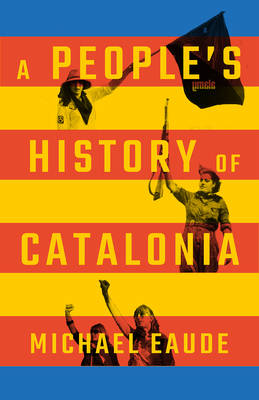
- Retrait gratuit dans votre magasin Club
- 7.000.000 titres dans notre catalogue
- Payer en toute sécurité
- Toujours un magasin près de chez vous
- Retrait gratuit dans votre magasin Club
- 7.000.0000 titres dans notre catalogue
- Payer en toute sécurité
- Toujours un magasin près de chez vous
156,45 €
+ 312 points
Description
At every home game of FC Barcelona, at 17 minutes and 14 seconds of play, the 100,000-capacity Camp Nou stadium is filled by the roar of "IN-DE-PEN-DÈN-CI-A!" Time stops for a second. History lives in the present... Catalonia's national consciousness has deep roots. There are countries twice the size with histories half as interesting. A People's History of Catalonia tells that history, from below, in all its richness and complexity. The region's struggle for independence has, for centuries, been violently resisted, the Catalan language suppressed and its leaders jailed. The fight of an oppressed nation for its sovereignty has often dovetailed with that of a militant working class for social justice. From the peasant revolts of the 15th century and the siege of Barcelona in 1714, to defeat in the Spanish Civil War, and the slow re-emergence of the workers' movement and anti-Francoist resistance in the years that followed, Michael Eaude tells a compelling story whose ending has yet to be written.On October 1, 2017, the Spanish police assault on Catalans voting in a peaceful referendum shot Catalonia's struggle for independence onto the world's front pages. Today, those two million-plus voters have neither forgiven nor forgotten: the struggle continues. Catalonia's national consciousness has deep roots. A People's History of Catalonia tells this small country's history, from below, in all its richness and complexity. Catalonia's struggles for freedom have, for centuries, been violently resisted; and its language and rights, suppressed. Since the nineteenth century, the fight for national sovereignty has often intertwined with working-class mobilisation for social justice. Barcelona became known as the Rose of Fire. In 1936 Catalonia saw one of history's most profound workers' revolutions. From the peasant revolts of the 15th century and the siege of Barcelona in 1714, through the explosive workers' movement led by anarchists, the defeat in the Spanish Civil War, to the anti-Franco resistance in the grim years that followed, the author tells a compelling story whose ending has yet to be written.
Spécifications
Parties prenantes
- Auteur(s) :
- Editeur:
Contenu
- Nombre de pages :
- 288
- Langue:
- Anglais
- Collection :
Caractéristiques
- EAN:
- 9780745342122
- Date de parution :
- 20-09-22
- Format:
- Livre relié
- Format numérique:
- Genaaid
- Dimensions :
- 140 mm x 216 mm
- Poids :
- 517 g

Les avis
Nous publions uniquement les avis qui respectent les conditions requises. Consultez nos conditions pour les avis.






